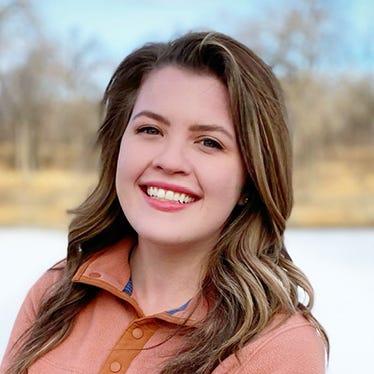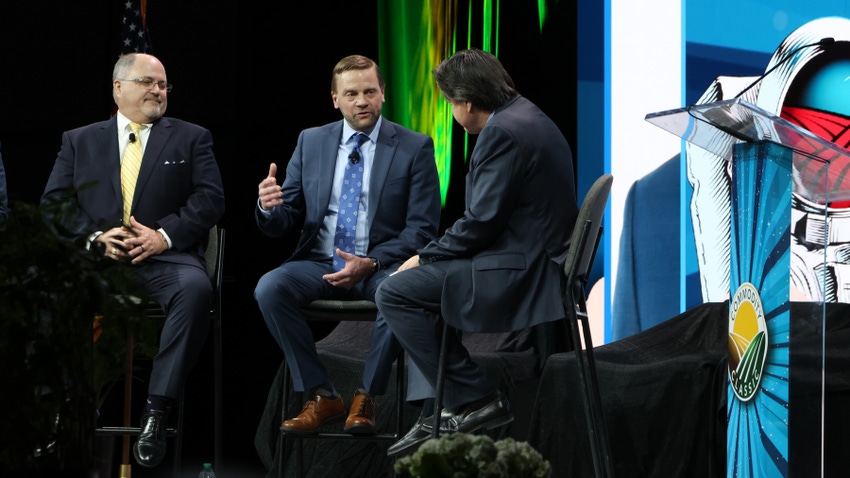
Farmers from across the country attend Commodity Classic each year to discuss policy, see the latest technology and equipment, or to celebrate their yield-winning crops. The following farmers discuss their time at the show and their expectations for the growing season.
Josh Gackle. Now serving as president of the American Soybean Association, Gackle of Kulm, N.D., has been a member of the ASA board since 2017. During the general session, he called Commodity Classic a great place for farmers to come together and discuss policy and the growing biofuels industry.
“Soy has a great history similar to ethanol in the biofuels industry,” he said. “It came when the original biodiesel plants were developed and brought money back to farmers, and now we’re into the renewal diesel side of data, with the value back to farmers.”
Referring to the arrival of USDA Secretary Tom Vilsack and other EPA officials at the event, Gackle said, “It’s great to have them here. We have over 11,000 participants in this room right now, and it’s really good that they’re here and spending some time with us.”
Austin Kautzman. Kautzman of Mott, N.D., attended Commodity Classic this year with WestBred Wheat as one of the 2023 National Yield Contest winners, growing WB9606 variety on his farm.
“I’ve been raising WestBred since 2016,” he said. “My dad raised it before me, and they have three varieties for our area that you can place on the right soil types, right crop rotations. So we can really pinpoint the best yields, quality, and this variety was our big winner.”
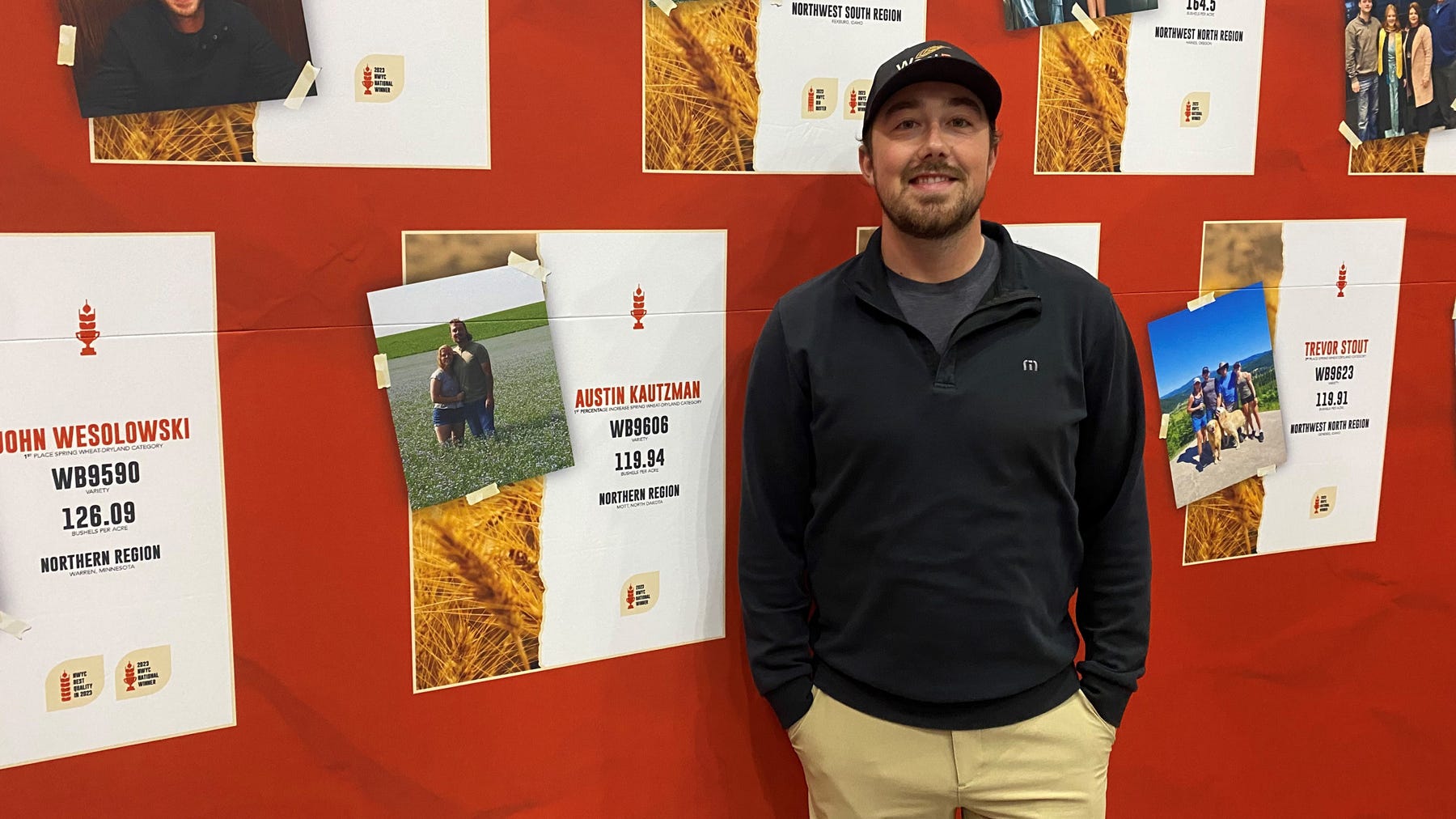
BIG WIN: Austin Kautzman of Mott, N.D., attended Commodity Classic with WestBred wheat, as his crop took first place in the National Wheat Yield Contest.
Kautzman said WestBred rewards its growers for their agronomic work with a trip to Commodity Classic, seeing the sights of the town. “It’s very rewarding with WestBred. We can pat ourselves on the back for our work for those three or four days,” he said.
Looking into the next season, he said they are optimistic about soil conditions. “It was wet all fall on our farm, and we haven’t had much snow cover, so people think it’s dry. But we actually have plenty of soil moisture going into 2024,” he said. “All the chemicals and decisions are set, so we’re set up and ready to go for the growing season.”
Cindy Pulskamp. Pulskamp of Hillsboro, N.D., is a director for the United Soybean Board and was named to the U.S. Soybean Export Council during its annual meeting at the show. Her family farm grows soybeans, wheat and sugarbeets in Traill County. “We’ve had a couple of meetings with both the USB and USSEC, doing our part to make sure people understand the value of the American soybean and how much value that farmer put into the products they grow,” she said.
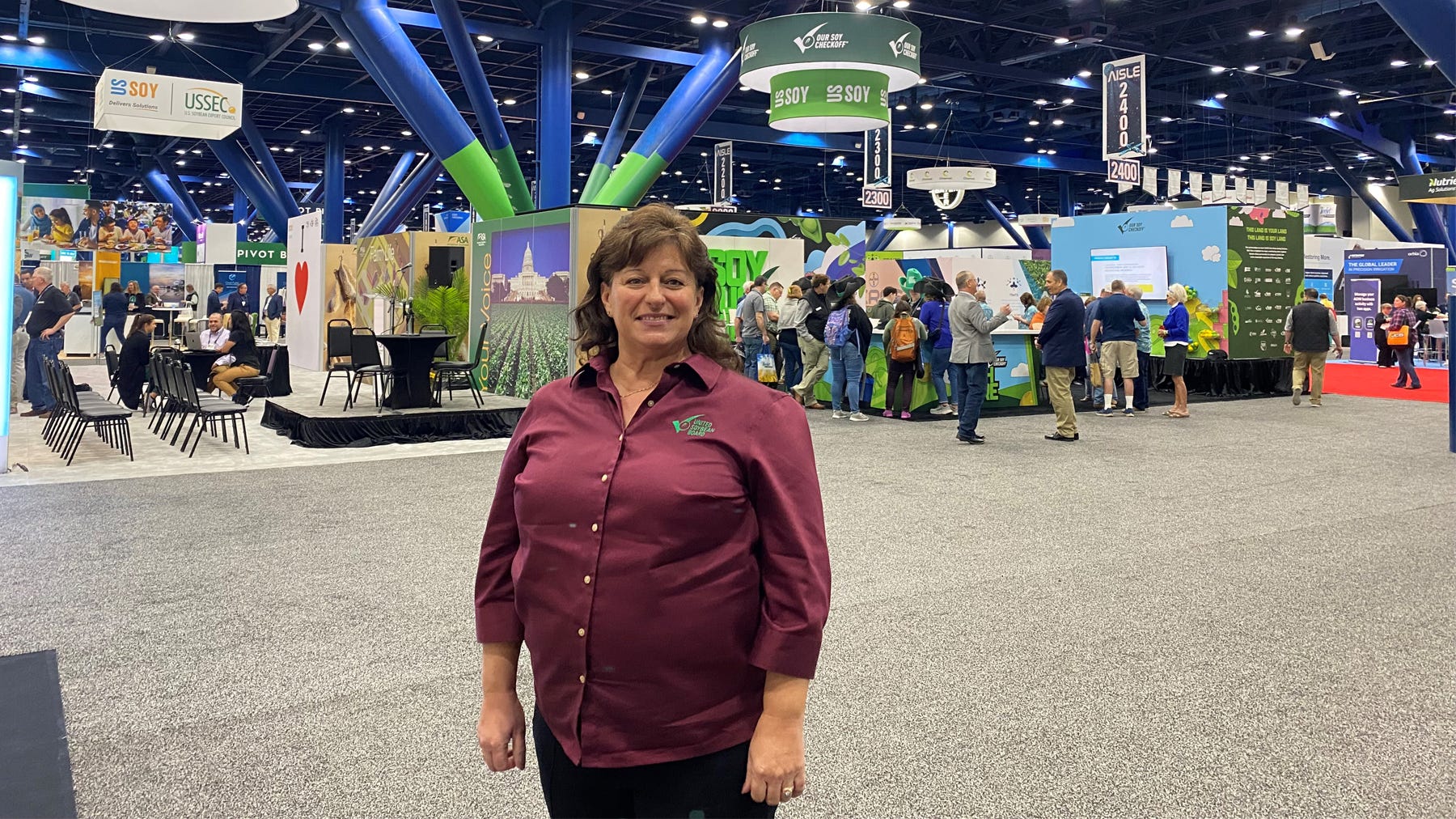
NEW POSITION: Hillsboro farmer Cindy Pulskamp attended the convention in Houston for her role as a director with the United Soybean Board. During the show, she was seated on the U.S. Soybean Export Council, and said she is looking forward to building connections and sharing the value of U.S. soy in this position.
“This is my first time at Classic, and I can’t believe why I’ve never come here before,” she said. “I would encourage anybody that’s thinking about it next year in Denver to take part if they can.”
Pulskamp said there were several orders of business to discuss at the show. “We have our Soy Excellent Centers, which are organizations all over the world that take persons from that country and train them,” she said, in areas such as poultry, feed milling, aqua culture, and soy food and beverage processing.
Looking forward to the 2024 season, she said their farm is hoping for a little more moisture. “Fall was nice and long, just wonderful,” she said. “We could have used a lot more moisture, so we were hoping for a little more snow cover, and now we’re just waiting to see what the temperatures do during this unusual winter.”
Jordan Scott. Scott of Valley Springs, S.D., is no stranger to attending Commodity Classic, with his work in state and national soybean organizations leading back to 2017. Scott farms alongside his father, Kevin, a former ASA president.
“This is our annual meeting where we work through all the policy for the coming year,” Scott said. “We set the policy and playbook for the year ahead, so there’s a lot of work to be done during this meeting.”
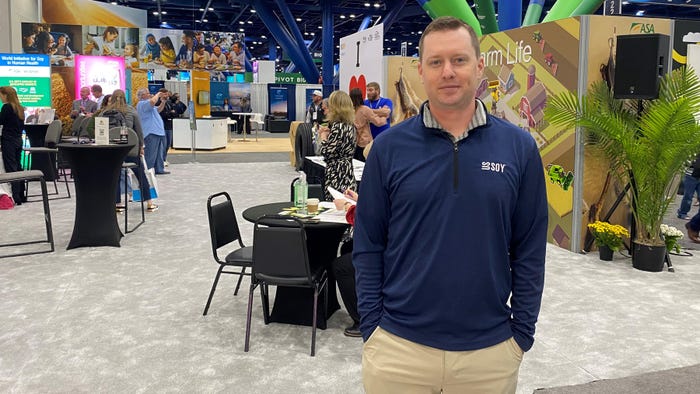
TRADITION: Jordan Scott of Valley Springs, S.D., said he is no stranger to attending the show, as he often came with his father, Kevin, a former ASA president. Now serving on the ASA board himself, Jordan said this year his father came along with him instead.
The farm bill is still top of mind for Scott and other farmers this year. “It’s going to be tough during an election year, especially when the government’s not funded. So we have some hurdles to overcome to get to that point, but we’re cautiously optimistic about getting it done this year.”
Back in South Dakota, soybean processing has improved. “We have a new plant going in near Mitchell, which is going to be a 35 million-bushel plant,” he said. “They’re going to do both sunflowers and soybeans, and other seed oils, so we’re excited to see that come on line and increase the value of local soybean and other crops.”
For this growing season, Scott said they’re hopeful for spring rains. “We had a pretty dry year last year and not much snow this year so we’re still dry,” he said. “We’re going to need some help to get the moisture in the ground, but we’re still farming and making adjustments where we need to and trying to stay sustainable and keep the farm going.”
All in all, Scott said, “When it comes down to it, we’re just doing a lot of work here to get our policy set, and we’re going forward. Keeping up the battle and doing what we can do.”
Kasey Bitz. Bitz is the president of the North Dakota Soybean Growers Association and a farmer in LaMoure, N.D. He said the regional caucuses are where much of the work is done. “During 2020, everything was done online,” he said. “We transitioned to doing some work before Classic, but we still get into state caucuses working with North and South Dakota, Minnesota, Wisconsin and New York.”
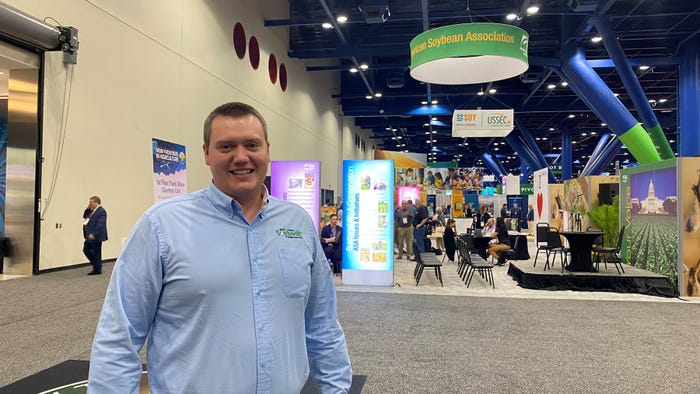
STATE LEADER: Kasey Bitz is the president of the North Dakota Soybean Growers Association and farms near LaMoure, N.D. He said the policy work and meeting done during Commodity Classic are imperative to a successful year for state and national organizations.
The farm bill was a high priority in Bitz’s work. “We need to strengthen and understand the ARC and PLC, and continue to look at the options, having those tools in the toolbox to protect farmers,” he said. “It’s kind of like a Swiss army knife where you don’t know when you’re going to need it, but we need to have those tools available to us.”
When thinking about the growing season, Bitz said 2023’s ended different than expected. “It’s been an interesting year, thinking back. We had early snow in October, so we weren’t sure if we were going to be able to get back in the field or not. But then we were able to finish off the crop and get some fieldwork done,” he added. “You know it’s North Dakota. We kind of rely on the snow, but we’ll see what ends up happening if we can plant early or not this year.”
About the Author(s)
You May Also Like


